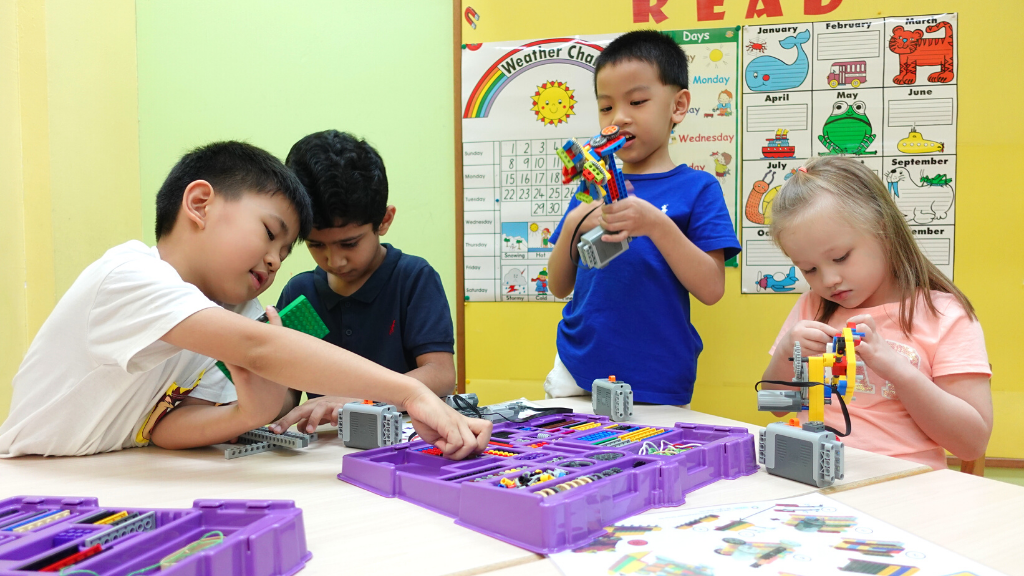Did you know that some of the most popular jobs today didn’t exist 20 years ago? If you travel back in time and tell people that you dream of becoming an AI engineer or an SEO analyst, people will probably think you are being delusional. The same goes for what’s going on today. It was estimated that 65% of today’s children will end up working in completely new jobs that don’t yet exist.
Due to constant technological advancements and disruptive changes to business models, the employment landscape will change in the coming years. What this means for our children is that they will need to adapt to new technologies and learn new skills to thrive in the future. This is where lifelong learning skills come into play—lifelong learning encourages life readiness which is all about the development of perseverance and a growth mindset.
What is lifelong learning?
Lifelong learning is the process of learning new skills and discovering new knowledge throughout your life. While some people practice lifelong learning for career advancements, some do it for self-development and fulfilments. With more and more technological advancements, people will soon realise that their skill sets are not enough to catch up with the latest trends. A great way to overcome this is to possess the love of learning.
Many benefits follow lifelong learning. Besides being able to constantly upskill oneself, it also helps to bring purpose into life. Thanks to lifelong learning, people can grow personally and professionally, address college and career readiness, and improve employability.
When you continue to learn new things as you grow, you get to boost your self-confidence and increase your level of competence. For parents with small children, they must instil a love for learning in their children from a young age. And do note that lifelong learning is not limited to just attending school and reading textbooks because people can learn from just about anywhere and anything. Learning can be done for leisure—reading before bedtime or listening to an educational podcast in the car. When done right, learning can be relaxing and rejuvenating. Find out more about the different types of lifelong learning below:
Different types of lifelong learning
1) Formal lifelong learning
This is the type of learning that many of us are familiar with. Formal lifelong learning follows a set schedule with a group of students. And it is typically done in schools, universities, and tuition courses.
2) Informal lifelong learning
Different from formal lifelong learning, this type of learning offers endless choices of learning methods. Learners are given control to choose how they want to learn, be it through reading, watching videos, or learning from a peer.
3) Self-directed lifelong learning
While informal lifelong learning gives a person control over how they learn, self-directed learning gives them more control over their learning method, path, and pace. More importantly, self-directed lifelong learning is the learning of how to learn effectively. For some, learning may be most effective through hands-on projects while some learned best through self-study.
4) Indirect lifelong learning
We all learn without realising sometimes. For instance, when we talk to someone about a certain topic, we find ourselves analysing their opinions and thinking for ourselves. Indirect lifelong learning happens through conversations, unexpected lessons, exposure to the world, meeting new people, and more. This kind of learning usually happens without any preparation or planning.
5) Professional lifelong learning
Professional lifelong learning is often done at the workplace. Whenever employees are required to gain new skills, companies will implement job training programmes or seminars to upskill them.
6) Personal lifelong learning
Different from professional lifelong learning, this type of learning is done outside of the workplace. It usually involves pursuing knowledge related to the person’s interest or passion. It can be a hobby or an activity done to kill time and it can be both formal and informal learning.
Lifelong learning can benefit someone from the young age of two to adults in their golden years. When it comes to gaining new knowledge, one is never too young or too old. However, the love for learning is best acquired from a young age. Parents and teachers must do their best to ensure children have fun learning and understand the importance of constant discoveries. Here at Young Engineers Singapore, our young little minds are exposed to classroom activities that are not only fun but also teach them the fundamentals of STEAM subjects. For more information about our enrichment programmes, get in touch with us now or email us at admin@youngengineers.sg.

